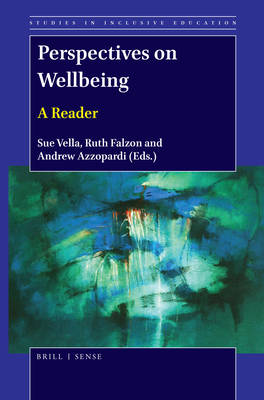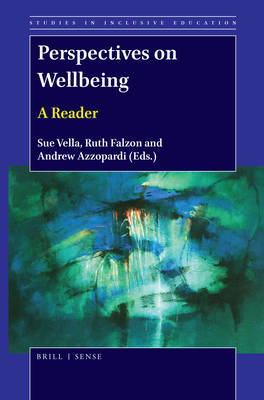
- Afhalen na 1 uur in een winkel met voorraad
- Gratis thuislevering in België vanaf € 30
- Ruim aanbod met 7 miljoen producten
- Afhalen na 1 uur in een winkel met voorraad
- Gratis thuislevering in België vanaf € 30
- Ruim aanbod met 7 miljoen producten
Zoeken
€ 209,45
+ 418 punten
Omschrijving
The study of wellbeing is not new. Over two millennia ago, the Ancient Greeks were already debating different conceptions of the good life, and how it may be fostered, albeit a debate for the privileged in ancient Greek society. More recently, the post-WWII concern with economic scarcity gave way - as prosperity rose in the later 20th century - to values such as personal growth and social inclusion. In parallel, research has increasingly turned its focus to wellbeing, going beyond traditional measures of income, wealth and employment. Greater attention is now paid to the subjective experience of wellbeing which, it is broadly agreed, has many dimensions such as life satisfaction, optimal functioning and a good quality of life.
Perspectives on Wellbeing: A Reader brings together a number of chapters that examine wellbeing from different disciplinary perspectives. A number of the chapters take the angle of human flourishing, looking at the respective contributions of belonging, emotional resilience, spirituality, prosocial behaviour, literacy and leisure. Others look at wellbeing through a social relations lens, including family relations, youth, persons with disability and gender. Finally, a chapter on wellbeing and economics illustrates different approaches to measuring wellbeing and identifying its determinants. The book concludes with a chapter that argues for the enduring importance of the welfare state if the wellbeing of all is to be ensured.
This book is likely to be of interest to both undergraduate and postgraduate students in the social sciences as well as to a general readership.
Contributors are: Angela Abela, Andrew Azzopardi, Paul Bartolo, Marie Briguglio, Amy Camilleri Zahra, Joanne Cassar, Marilyn Clark, Ruth Falzon, Vickie Gauci, Ingrid Grech Lanfranco, Natalie Kenely, Mary Anne Lauri, Marceline Naudi, Claudia Psaila, Clarissa Sammut Scerri, Sandra Scicluna Calleja, Barbara Stelmaszek, Sue Vella, and Val Williams.
Perspectives on Wellbeing: A Reader brings together a number of chapters that examine wellbeing from different disciplinary perspectives. A number of the chapters take the angle of human flourishing, looking at the respective contributions of belonging, emotional resilience, spirituality, prosocial behaviour, literacy and leisure. Others look at wellbeing through a social relations lens, including family relations, youth, persons with disability and gender. Finally, a chapter on wellbeing and economics illustrates different approaches to measuring wellbeing and identifying its determinants. The book concludes with a chapter that argues for the enduring importance of the welfare state if the wellbeing of all is to be ensured.
This book is likely to be of interest to both undergraduate and postgraduate students in the social sciences as well as to a general readership.
Contributors are: Angela Abela, Andrew Azzopardi, Paul Bartolo, Marie Briguglio, Amy Camilleri Zahra, Joanne Cassar, Marilyn Clark, Ruth Falzon, Vickie Gauci, Ingrid Grech Lanfranco, Natalie Kenely, Mary Anne Lauri, Marceline Naudi, Claudia Psaila, Clarissa Sammut Scerri, Sandra Scicluna Calleja, Barbara Stelmaszek, Sue Vella, and Val Williams.
Specificaties
Betrokkenen
- Uitgeverij:
Inhoud
- Aantal bladzijden:
- 192
- Taal:
- Engels
- Reeks:
- Reeksnummer:
- nr. 41
Eigenschappen
- Productcode (EAN):
- 9789004394162
- Verschijningsdatum:
- 7/03/2019
- Uitvoering:
- Hardcover
- Formaat:
- Genaaid
- Afmetingen:
- 157 mm x 236 mm
- Gewicht:
- 408 g

Alleen bij Standaard Boekhandel
+ 418 punten op je klantenkaart van Standaard Boekhandel
Beoordelingen
We publiceren alleen reviews die voldoen aan de voorwaarden voor reviews. Bekijk onze voorwaarden voor reviews.










